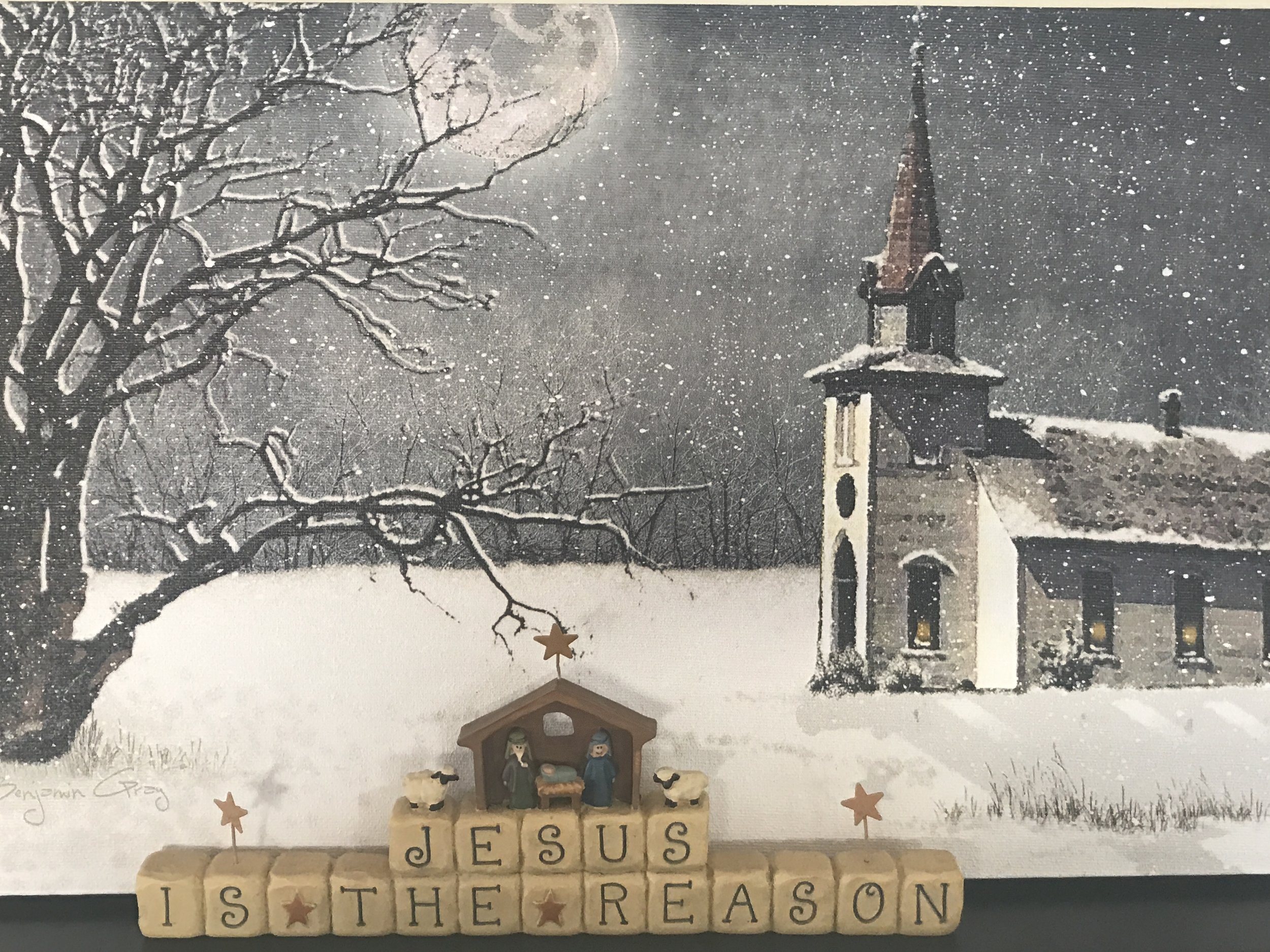
The following is an essay written by Jessica Kleeberger, the sixteen year old great niece of my wife, Ruth. This is my first post from a guest writer. Her story fits well with a passion of my heart and I did not think I could express it any better than what she wrote.
Kim twisted in her seat to get a good view of the clock, tapping her fingers impatiently against the back of the hard plastic seat. Five minutes passed. Her eye fell on a magazine resting on a side table, and she began to flip through it indifferently. Here was a recipe for the ultimate brownie, there an article extolling the wonders of organic farming, next a promotion for a book with a rather nondescript cover…Ten minutes passed.
Kim, having little patience for the delay and even less for the typical waiting room publication, gave up looking at the magazine and reached for another at random in the stack. She suppressed a groan as she looked at the cover of a slender mother, dressed stylishly in a crocheted shawl and hugging a grinning child. Parenting. Just the thing she hadn’t expected, or wanted, when she had gone out for a celebratory date with Dylan. If only she had not joyfully flung all caution to the wind as she threw herself into his arms. Now parenting was just the thing she could be facing, if the pregnancy tests she had done at home had been correct. Fifteen minutes passed.
Finally, a woman with a white coat and bouncy step emerged from the hall, a clipboard and a sheath of papers cradled on her arm. “Kimberly Wilson?” she asked, pausing in front of her chair. “I have the results of your test.”
Yes, the results said she would be a mother, but she was not a slave to mere ink, contorted into the shapes of letters on a piece of paper. She had options, the nurse said- This was her body, her choice.
Kim thought of all the anti-abortion flyers she had read. They had said that the baby had a unique DNA pattern, the only one of its kind in the world. That life began at conception. She pushed the thoughts out of her head. The nurse was right: This was no one’s choice but hers.
“Take a few days to think about it if you like, dear,” the nurse said, patting her on the arm.
O0o
A few nights later, Kim was awakened by a rustle. She pried open her eye lids, heavy with slumber, and glanced around the darkened room. It was empty. The sound she had heard must have just been the house’s foundation creaking in the wind- she always had been a light sleeper, awakened by the least of nightly noises. She snuggled back down under her blankets, already drifting back to sleep. Her eyes popped open again when she felt something touch her shoulder, and, thinking she must be getting paranoid, she rolled her head over on the pillow to see what it-
“Aaargh!” she shrieked, rocketing up onto her knees and yanking her blankets around her. Only a wild, desperate grasp at her bed post saved her from falling backward off the bed. In front of her stood a shadowy figure, too small to be an adult but seeming almost too still to be a living child.
Kim lunged for the lamp on her nightstand. Her fingers missed the knob, brushing against the lamp, and she barely managed to catch it as it teetered on the edge of the stand. Taking a deep breath and willing her shaking fingers to cooperate, she steadied the lamp and turned it on. The child hadn’t flinched and was staring at her complacently, unstartled by Kim’s panicked flurry. It was probably just an illusion caused by glow of the lamp, but it looked as if the little girl’s eyes, glinting and shimmering like the reflection of starlight on a lake, were silver.
“You frightened me. How did you get in? Where are your parents?” Kim paused for breath, then blurted out, “And who are you?”
“A voice for those who do not have one. Or my little angel. That’s what my Father calls me.”
“A- voice?” Kim murmured, not believing her ears.
She smiled, but it was, Kim thought, a smile far too sad for such a small child. “My mom called me Leah, though. You can call me that.”
Then, although Kim’s stomach was still too slender to bely her pregnancy, Leah tiptoed up and kissed it. The touch of her lips, which felt like the feathery, light brush of angel wings, was swift and gentle, too innocent and reverent for Kim to be offended by it or repulse the gesture. “Hello, little guy,” Leah whispered.
Kim gaped at Leah. “How did you know I was pregnant? And how do you know it’s a boy?”
She shrugged. “He tells me.”
“Who’s He?”
“He is my heavenly Father, and he sent me to show you something.”
“Show me something? In the middle of the night?”
“Why not? Here.”
Before Kim could respond, the child was clasping her hand in a warm, gentle grip. The room with its familiar furniture, cluttered with keepsakes and trinkets, faded in front of Kim’s eyes and vanished.
“What’s happening? Leah, what have you done?” Kim cried, leaping to her feet and trying to yank her hand out of the child’s. Leah didn’t let go. “Shhh, just wait. It will be okay,” she murmured. “Look.”
Something about her quiet confidence made Kim obey, and she was startled to see herself reclining in a hospital bed, cradling a baby. She could see him perfectly- the blonde down on his tiny skull, the squinted eyes that opened to reveal pale blue slits, the tiny fingers curled into fists.
“Joseph,” Leah said softly at her side. Kim, eyes riveted on the scene, tore them away long enough to glance at the little girl. “Joseph?”
“Joseph. Your little boy,” Leah explained, as if this were the most natural thing in the world. “I can show you more.” She raised her hand and flicked her small fingers against each other, but she lacked the coordination to produce a crisp snap. Nothing happened. When her second attempt did not produce any better results, Leah let out a small, annoyed huff and moved Kim’s hand to her shoulder.
“Here, hold on to me.” She clapped her hands, and Kim found herself looking at a sandy haired toddler. Joseph again, Kim supposed.
His arms were crossed, and his lips turned up in a pout. She saw herself again, an expression of frustration and sadness evident on her own face. The baby had been cute, Kim reasoned, but it seemed parenting still cost more grief than it was worth. Then, Joseph’s face changed. She saw the childish anger fade from his eyes, and his lips trembled. “I sorry for being naughty, Mommy!” He flew into his mother’s arms, and she snuggled him close. “I forgive you.”
Watching, Kim could almost feel the warmth of the hug. Just as she was almost wishing she could experience the small arms wrapped around her waist and marvel at how much love the small limbs could give, Leah’s clap yanked her out of the scene and into another.
There was a boy leaning against a school wall, a backpack slung over his shoulder. He reached into a pocket and pulled out a small white bottle. He unscrewed the lid and raised a handful of pills to his mouth…
“Hey, Steve! Wait!” A voice called. A boy ran up to the wall, bending over and placing his hands on his knees while he panted for breath. The clear blue eyes, filled with concern, revealed what Kim had instinctively felt- This was an older Joseph. Joseph took a deep breath and flicked an unruly shock of hair- now darkening into a pale brown- off his forehead. “Steve, you don’t have to take those.”
“I can’t do it anymore, Joe,” the other boy replied shakily, and Kim thought she could see traces of tears in his eyes. “Nobody cares.”
“I do, Steve. You’re my friend, and I don’t want to lose you,” Joseph said softly, moving to place a hand on his shoulder. “I want to help, and I’m not going to leave you alone until you feel better. Come on, and we can talk to Mr. Benson. He can help. I’ll come with you.”
“I don’t know if this will work, man, but… thanks.”
“Anytime.”
What she felt was not a small amount of surprise, and to her amazement, there was also a thrill of motherly pride- pride in this boy whose compassion had saved a life and surprise that the small group of delicate cells growing inside her could do something so important. How might the world be different, she wondered, if all those fetuses had had their chance to save a life, to write a book, to give a speech, to love and give? Kim, wrapped up in the drama in the scene, almost didn’t notice Leah’s smile and whisper: “That was a good one, but I like this one, too.” She clapped.
Joseph’s hair was completely brown now- at least, what little of it Kim could see peeking out from under his graduation cap. His eyes, dancing with joy and tempered with solemnity, looked up and met Kim’s eyes for a moment. Not the eyes of the well-dressed Kim who stood in front of her son to accept roses and a hug from him- No, that woman was different.
She had changed from the Kim who sat in the doctor’s office contemplating whether not to abort a fetus. Yes, she had learned frustration, weariness, and self-sacrifice as only a mother could, but she had also known love, pride, and joy as only a parent could. Her son had changed her. And Kim wanted the change her hypothetical future counterpart had found- she coveted it. A tear rolled down her cheek.
“My son,” she whispered, then a sob escaped her lips. “I want my son. I want to give him a chance- And I need him to give me one.”
Leah squeezed her hand, and whispered, “You still have a chance.” She stared up at Kim, looking sympathetic and far more knowing about matters of life and death than Kim thought any child anywhere should look. Leah clapped her hands.
Kim bolted upright in her bed, breathing hard. She looked around for Leah, but there was no sign of a little girl- just the shadows cast by her curtains, the keepsakes from last summer’s trip to Washington, and the nest of blankets she was tangled in. And- inside of her- the most important thing of all: her son. It had all been a dream, but her choice was made.
She rubbed her stomach, feeling a closer connection to the tiny being inside her than she ever had before. Her choice would mean changing diapers and signing report cards, bandaging scraped knees and washing laundry as dirty as only a little boy can make it. It would not be easy, but it would be worth it. The little one inside her was potential. He was sleepless nights and tears. He was love. He was a human life. He was Joseph.
"I choose you, Joseph,” Kim whispered. “My son. I choose life!”
O0o
He was just as she had seen him in her dream- the blonde down on his tiny skull, the squinted eyes that opened to reveal pale blue slits, the tiny fingers curled into fists.
There was a knock on her door, and a woman poked her head inside the hospital room. “Hello, I’m Victoria. I volunteer here in the maternity ward, making hats for the babies. Can I give you one?” She held up a tiny, knitted blue hat.
“That’s so nice of you,” Kim smiled. “I would love one. Please, come in.”
Victoria tiptoed into the room, unwilling to disturb the baby. “Oh, he’s precious,” she whispered.
Kim glanced up and was surprised to see tears in the woman’s eyes. Victoria looked up from Joseph’s face and met her eye. “Oh, I’m sorry,” she said faintly, and offered a sad smile that Kim found strangely familiar but couldn’t place. “Your baby is just so beautiful, and this is my first day volunteering here.”
Her voice trembled, and she fumbled in her pocket for a tissue to dab her eyes. “I chose an abortion a few years ago, and I’ve regretted it ever since. That’s why I decided to start coming here to visit new moms- it’s my way of saying I’m sorry to my little girl, if she can see it looking down from heaven.”
At Kim’s confused look, she smiled through her tears. “No, scientifically I don’t know her gender, but I’ve always been sure in my heart that it was a little girl. Each year, I think of her and how old she would have been, what milestones she would have passed…”
Victoria’s voice trailed off, and Kim realized the woman had grey eyes, almost silver, which combined with her tears faintly resembled starlight reflected on a lake. When she smiled again, Kim recognized it.
“My baby would have been seven years old this summer,” Victoria murmured. “I call her Leah.”
Written by Jessica Kleeberger as "A pro-life persuasive Story."






 The apostle Paul begins his list describing the characteristics of people who make up the “perilous times” of 2 Timothy 3 with the phrase “lovers of self.” Does this not sum up the Facebook generation? For many, posting is all about drawing attention to themselves, their lives, and their opinions. It’s all about making them look good. I have not been immune to this temptation myself.
The apostle Paul begins his list describing the characteristics of people who make up the “perilous times” of 2 Timothy 3 with the phrase “lovers of self.” Does this not sum up the Facebook generation? For many, posting is all about drawing attention to themselves, their lives, and their opinions. It’s all about making them look good. I have not been immune to this temptation myself. When I first heard the expression, my immediate thought was “that’s it!” This fits perfectly with what I see.
When I first heard the expression, my immediate thought was “that’s it!” This fits perfectly with what I see.
 The anti-Trump sentiment has hit a fever pitch in recent weeks over his immigration policies. Even though President Trump’s initiatives differ little from the policies of other recent presidents, this has not stopped the fierce condemnation of his executive orders. Many forget that President Obama stopped all immigration from Iraq for six months in 2011 citing similar reasons for his travel ban that President Trump is giving for his actions.
The anti-Trump sentiment has hit a fever pitch in recent weeks over his immigration policies. Even though President Trump’s initiatives differ little from the policies of other recent presidents, this has not stopped the fierce condemnation of his executive orders. Many forget that President Obama stopped all immigration from Iraq for six months in 2011 citing similar reasons for his travel ban that President Trump is giving for his actions. I must confess that I have enjoyed several of the Christmas movies on the Hallmark channel during the past few weeks. My wife and I watched them together; I think we are just romantics at heart.
I must confess that I have enjoyed several of the Christmas movies on the Hallmark channel during the past few weeks. My wife and I watched them together; I think we are just romantics at heart.
 In the aftermath of the 2016 election, we continue to see rioting and violence spread across America. Chants of “not my president” and “not my country” are common. Some of the demonstrations have turned anti-American with the burning of American flags and even deadly as a protest blocking traffic kept an ambulance from getting to a hospital in time to save a man’s life. Regrettably, attacks persist on both sides.
In the aftermath of the 2016 election, we continue to see rioting and violence spread across America. Chants of “not my president” and “not my country” are common. Some of the demonstrations have turned anti-American with the burning of American flags and even deadly as a protest blocking traffic kept an ambulance from getting to a hospital in time to save a man’s life. Regrettably, attacks persist on both sides.